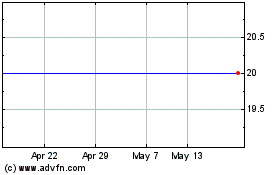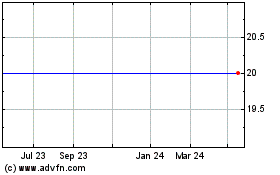Pall Corporation - Re Pall Filters
August 25 1999 - 10:57AM
UK Regulatory
RNS No 5017c
PALL CORPORATION
28 July 1999
For More Information Contact:
Patrice Radowitz or Jami Bitter, Pall Corporation, Media Calls
(516) 484-3600 ext. 6111 or 6227
Diane Foster, Pall Corporation, Investor Relations Calls
(516) 484-3600 ext. 6109
Sarah Bowling, American Red Cross
(703) 312-5535
LOCAL REGION OF AMERICAN RED CROSS SELECTS PALL FILTERS
Tennessee Valley Becomes Fourth Red Cross Region in Nation to Make Switch to All
Leukocyte-Reduced Blood
EAST HILLS, NY, July 28, 1999 - - Pall Corporation, (NYSE: PLL), announced today
that the Tennessee Valley Region of the American Red Cross has selected Pall
filters to reduce leukocytes (white blood cells) in all blood products for the
75 hospitals that it supplies. This is the fourth American Red Cross blood
region to convert to 100 percent filtration since January of this year.
Nationally, the Red Cross is committed to providing only leukocyte-reduced blood
by the end of the year 2000. Pall Corporation's revolutionary filter technology
being used by the American Red Cross significantly reduces white blood cells in
donor blood. For patients and health care systems, this means fewer
complications, faster recoveries and lower costs.
With its conversion to leukocyte-reduced blood, the Tennessee Valley Region
joins Red Cross regions in Louisville, Birmingham and Mobile that have also
recently converted to an all leukoeyte-reduced inventory.
Their decision is consistent with the recommendation last fall by the Blood
Products Advisory Committee (BPAC) of the Food and Drug Administration (FDA)
which concluded, "the benefit to risk ratio associated with leukoreduction is
sufficiently great to justify routine leukoreduction of all non-leukocyte
transfusion blood components." BPAC is an advisory committee to the FDA, which
means it makes recommendations to, but does not set policies for, the agency.
"Pall is pleased that the Tennessee Valley Region of the American Red Cross has
committed to leukocyte reduction by filtration to make blood transfusions
safer," said Eric Krasnoff, Chairman and Chief Executive Officer of Pall
Corporation. "The many clinical benefits of filtration have also been proven to
be cost effective. Routine filtration is already making the blood supply safer
in many European countries and Canada. The Tennessee Valley Region has assumed a
leadership role in adopting universal leukocyte reduction in the United States."
"We believe pre-storage leukocyte reduced blood will benefit many patients,
particularly those who need repeated transfusions, cancer treatment or major
operations," said Dr. Brian Carlson, Medical Director for the American Red
Cross, Tennessee Valley Blood Services Region. "We think this conversion to 100
percent leukocyte-reduced inventory is a step forward in protecting the safety
of the blood supply."
Vanderbilt University Medical Center, the largest blood user in the 80-county
region, began ordering only leukocyte-reduced blood last fall. "We did it
because it's best for the patient," stated Dr. Anne T. Thomas, Assistant
Professor of Pathology and Medicine and Director of the hospital's blood bank.
Thomas says the hospital has seen a drop in blood transfusion reactions,
specifically febrile nonhemolytic transfusion reactions (fever and chills),
since it began using only leukocyte-reduced blood last September.
Benefits of Leukocyte Reduction
Clinical studies 1,2,3 have demonstrated that filtering leukocytes from blood
using Pall filters results in a decrease of infection, length of hospital stay
and cost of care for surgical patients. Leukocytes have also been identified as
a potent mediator of serious clinical transfusion complications, including
pathogen transmission, immune suppression, and platelet refractoriness.
Many viruses 4, including cytomegalovirus (CMV), Human T-cell Lymphotrophic
Virus (HTLV-1) and Epstein-Barr and other Herpes viruses and bacteria (including
Yersinia), are white cell or leukocyte associated. Blood donors are routinely
screened for only a few of these viruses. Filtration is an important line of
defense against these agents and, perhaps, other emerging or yet-to-be
discovered viruses or bacteria.
Each year approximately 2.5 million Americans receive blood transfusions while
undergoing surgery. This accounts for over half of all transfused blood used in
the United States. The amount of blood required for certain surgeries varies
considerably. For an organ transplant, up to 100 units of blood may be required;
an open heart surgical procedure can use up to 40 units, while hip replacement
surgery may require from two to as many as 20 units of blood or blood
components. Studies have shown that patients who receive filtered blood
experience less transfusion-associated immune suppression and fewer
post-surgical infections and that they remain in the hospital for less time and
cost less to treat. 5,6
Cancer patients, including leukemics and bone marrow transplant recipients,
require platelet transfusions as a critical part of their treatment but can
develop antibodies to these transfusions resulting in rejection. Leukocytes are
responsible for the induction of these antibodies. Reducing them is a proven
means of avoiding this life-threatening complication, thereby maintaining
precious blood utilization and its associated costs. 7
Several countries, including Canada, England, France, Portugal, Ireland and
Scotland have already made the decision to filter all blood and are moving
forward with their implementation programs.
Blood Filtration in the United States
In the United States, about 12 million units of blood are collected and
transfused each year. Approximately 60 percent of platelet units and 30 percent
of red blood cell units are currently filtered to reduce leukocytes.
About Pall
Pall Corporation is a specialty materials and engineering company with the
broadest-based filtration and separation capabilities in the world. Pall
develops and manufactures sophisticated filtration systems that are used in
critical applications throughout industry.
In Health Care, the company's largest business segment, Pall offers the broadest
array of filtration products that are used in the blood center, hospital blood
bank and the patient's bedside. Pall pioneered the development of leukocyte
reduction blood filters and leukocyte reduction blood processing systems used by
hospitals and blood centers.
Pall Corporation, with annual sales over $1 billion, is based in East Hills, New
York, and employs 8,500 people throughout the world. The Company's shares are
listed on the New York Stock Exchange (PLL) and the London Stock Exchange
(0668260).
For more information on leukocyte reduction, please visit the Pall Corporation
Web site at:
http://www.pall.com/leukoreduce or the educational Web site that Pall sponsors
at:
http://www.bloodtransfusion.com.
References:
1 Jensen LS, et al. Cost-effectiveness of blood transfusion and white cell
reduction in elective colorectal surgery. Transfusion 1995; 35:719-722.
2 Jensen LS, et al. Randomised comparison of leucocyte-depleted versus
buffy-coat poor blood transfusion and complications after colorectal surgery.
Lancet 1996;348:841-845.
3 Tartter Pl, et al. Randomized trial comparing packed red cell blood
transfusion with and without leukocyte depletion for gastrointestinal surgery.
Am J Surg 1998;176:462-466.
4 Bowden RA, et al. A comparison of filtered leukocyte reduced and
cytomegalovirus (CMV) seronegative blood products for the prevention of
transfusion-associated CMV infection after marrow transplant. Blood
1995;86:3598-3603
5 Blumberg N, Allogeneic transfusion and infection: economic and clinical
implications. Seminars in Hematology 1997;34:34-40.
6 Blumberg N, Heal JM. Blood transfusion immunomodulation. The silent epidemic.
Arch Pathol Lab Med 1998;122:117-119
7 The Trial to Reduce Alloimmunization to Platelets Study Group. Leukocyte
reduction and ultraviolet B irradiation of platelets to prevent
alloimmunization and refractoriness to platelet transfusions. N. Engl J Med
1997;337:1861-1868
END
MSCAVARKKAKWUAR
Equatorial Palm Oil (LSE:PAL)
Historical Stock Chart
From Jun 2024 to Jul 2024

Equatorial Palm Oil (LSE:PAL)
Historical Stock Chart
From Jul 2023 to Jul 2024
